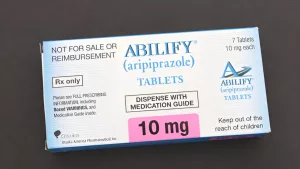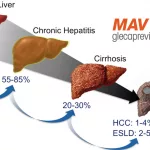Quick Answer
If you’re scrolling through endless pages wondering whether Rexulti can calm agitation in a loved one with dementia, the short answer is: yes. Rexulti (brexpiprazole) is the first FDA‑approved antipsychotic specifically indicated for agitation associated with dementia due to Alzheimer’s disease. Clinical data show it can cut down aggressive behaviors and ease caregiver stress, but it does come with a safety profile that demands careful monitoring.
How It Works
Rexulti is a “second‑generation” antipsychotic, meaning it talks to more than one brain messenger. It works as a partial agonist at dopamine‑D2 and serotonin‑5‑HT1A receptors while blocking serotonin‑5‑HT2A receptors. In plain English: it smooths out the dopamine‑serotonin rollercoaster that fuels agitation, without shutting the system down completely. This balanced mechanism is why many clinicians find it gentler than older antipsychotics.
Who Benefits
Approved indication: agitation linked to dementia due to Alzheimer’s disease. To qualify, patients typically meet these criteria:
- Probable Alzheimer’s diagnosis per NINCDS‑ADRDA standards.
- Mini‑Mental State Examination (MMSE) score between 5 and 22.
- Neuropsychiatric Inventory‑Nursing Home (NPI‑NH) agitation score ≥ 4.
Rexulti is not intended for dementia‑related psychosis without agitation, and it shouldn’t be used on a “as‑needed” basis. If your family member fits the profile above, a chat with their neurologist or geriatric psychiatrist is the next logical step.
Dosage Guide
Finding the sweet spot takes a little patience. Most prescribers start low, titrate slowly, and settle on a maintenance dose of 1 – 3 mg daily, depending on response and tolerability.
| Week | Starting Dose | Target Dose | Notes |
|---|---|---|---|
| 1‑2 | 0.25 mg (Days 1‑3) → 0.5 mg (Days 4‑14) | — | Slow titration reduces akathisia risk. |
| 3‑4 | 1 mg | 1 mg | Assess agitation reduction and side‑effects. |
| 5‑8 | — | 2 mg (optional 3 mg) | Increase only if agitation persists. |
| 9‑12+ | — | Maintain 2 – 3 mg | Continue monitoring every 4 weeks. |
If the patient has moderate liver impairment, many clinicians cap the final dose at 2 mg. Always check baseline labs (glucose, lipids, liver enzymes) before starting.
Clinical Evidence
Two pivotal Phase III trials (Study 6 and Study 7) enrolled over 800 participants with Alzheimer’s‑related agitation. Both showed a statistically significant drop in the Cohen‑Mansfield Agitation Inventory (CMAI) total score after 12 weeks of treatment with 2 mg or 3 mg Rexulti versus placebo. The average reduction was about 9 points compared with a 3‑point drop on placebo—a difference many clinicians consider clinically meaningful.
Post‑hoc pooled analyses presented at the American Association for Geriatric Psychiatry meeting in March 2024 reported that Rexulti also cut overall neuropsychiatric symptoms and caregiver distress as early as week 4 (Otsuka press release).
The same data set, shared later at the Alzheimer’s Association International Conference, showed that the benefit persisted up to 24 weeks. Roughly 82 % of patients on continuous Rexulti achieved a “clinically meaningful response” (≥20‑point CMAI reduction), versus 73 % of those who crossed over from placebo (AAIC 2024 poster).
Benefits vs Risks
Every medication has a trade‑off, and Rexulti is no exception. Below is a quick snapshot to help you weigh the pros and cons.
| Benefit | Risk / Side Effect |
|---|---|
| Reduces aggression, pacing, shouting. | Akathisia (inner restlessness) – up to 14 %. |
| Improves caregiver sleep and reduces distress within 4 weeks. | Weight gain, mild metabolic changes. |
| Statistically significant CMAI score drop (≈ 9 points). | Potential for QT prolongation in vulnerable hearts. |
| Oral once‑daily dosing – simple for routines. | Increased mortality signal in elderly with dementia‑related psychosis (FDA warning). |
Serious warnings are not to be taken lightly. The FDA requires a black‑box caution that antipsychotics, including Rexulti, raise the risk of death in older patients with dementia‑related psychosis. That’s why the label specifies it’s approved only for agitation, not for psychosis alone.
Managing Side Effects
Good news: many side effects are manageable with a few practical steps.
- Akathisia: If your loved one feels “antsy,” a low‑dose beta‑blocker (e.g., propranolol) or a short course of benztropine can help. Always discuss with the prescribing doctor first.
- Weight gain: Encourage light activity like short walks or seated stretching, and monitor weight at each visit.
- Sleep disturbances: Administer the dose “in the morning” rather than at night; consider melatonin if insomnia persists.
- Metabolic labs: Re‑check fasting glucose and lipids every 3‑6 months.
If any side effect feels severe (e.g., sudden fever, uncontrolled tremor, or worsening confusion), call the doctor promptly. Stopping the drug abruptly can cause rebound agitation, so any change should be gradual.
Real‑World Experience
Let me share a story that sticks with me. My neighbor, June, cared for her 78‑year‑old mother, Mary, who had moderate Alzheimer’s. Mary would pace the hallway for hours, shouting “Who’s there?” at night. June tried environmental tweaks and non‑pharmacologic strategies for months with limited success. After a thorough evaluation, her neurologist started Mary on Rexulti 0.25 mg, titrating up to 2 mg over six weeks.
By week 4, June reported that Mary’s pacing dropped from “constant” to “once or twice a day,” and the nightly shouting faded. The caregiver’s own sleep improved dramatically, and June felt less exhausted. She noted a mild increase in Mary’s appetite, but it was manageable with portion control. June’s experience mirrors the clinical trial trends—early caregiver relief and a tolerable side‑effect profile when titrated slowly.
How It Stacks Up
Other antipsychotics like risperidone, quetiapine, and olanzapine have been tried off‑label for dementia agitation, but none have FDA approval for this specific use. In head‑to‑head literature reviews, Rexulti shows comparable or slightly better agitation reduction with a lower incidence of extrapyramidal symptoms than risperidone, and less metabolic impact than olanzapine.
| Medication | Efficacy (CMAI ↓) | Key Side Effects | FDA Status |
|---|---|---|---|
| Rexulti (2‑3 mg) | ≈ 9‑point drop | Akathisia, weight gain | Approved for agitation (Alzheimer’s) |
| Risperidone | ≈ 7‑point drop | Parkinsonism, prolactin ↑ | Off‑label |
| Quetiapine | ≈ 5‑point drop | Sedation, orthostatic hypotension | Off‑label |
These figures are not a substitute for individualized care, but they illustrate why many prescribers now consider Rexulti the “first‑line” pharmacologic option for agitation.
Practical Guidance
Here’s a checklist you can hand to your doctor or keep on the fridge:
- Confirm Alzheimer’s diagnosis and agitation severity (CMAI/NPI‑NH scores).
- Obtain baseline labs: fasting glucose, lipid panel, liver enzymes, ECG if cardiac risk.
- Start at 0.25 mg, titrate to 1 mg by week 3, then assess.
- If agitation persists, increase to 2 mg (or 3 mg if tolerating well).
- Schedule follow‑up visits at weeks 2, 4, 8, 12 – track CMAI scores and side effects.
- Incorporate non‑pharmacologic measures: structured activity, music therapy, safe environment.
- Discuss any new symptoms immediately (especially fever, sudden confusion, falls).
- Re‑evaluate necessity after 12 weeks; consider tapering only under supervision.
Bottom Line
Rexulti offers a scientifically backed, FDA‑approved way to calm agitation in Alzheimer’s‑related dementia, delivering real relief for both patients and caregivers. The drug’s balanced mechanism translates into measurable improvements in behavior, often within a month, while its side‑effect profile is generally manageable with careful titration and monitoring.
That said, no medication is a magic wand. Success hinges on shared decision‑making, vigilant safety checks, and pairing Rexulti with proven non‑pharmacologic strategies. If you or a loved one are navigating this challenging terrain, talk openly with your healthcare team, weigh the benefits against the risks, and don’t hesitate to ask for support resources—whether it’s a caregiver support group or a trusted neurologist.
We’ve covered the science, the numbers, the real‑world story, and the practical steps you can take today. If you have questions, experiences to share, or just need a listening ear, drop a comment below. We’re all in this together, and every story helps another family find a path forward.





















Leave a Reply
You must be logged in to post a comment.